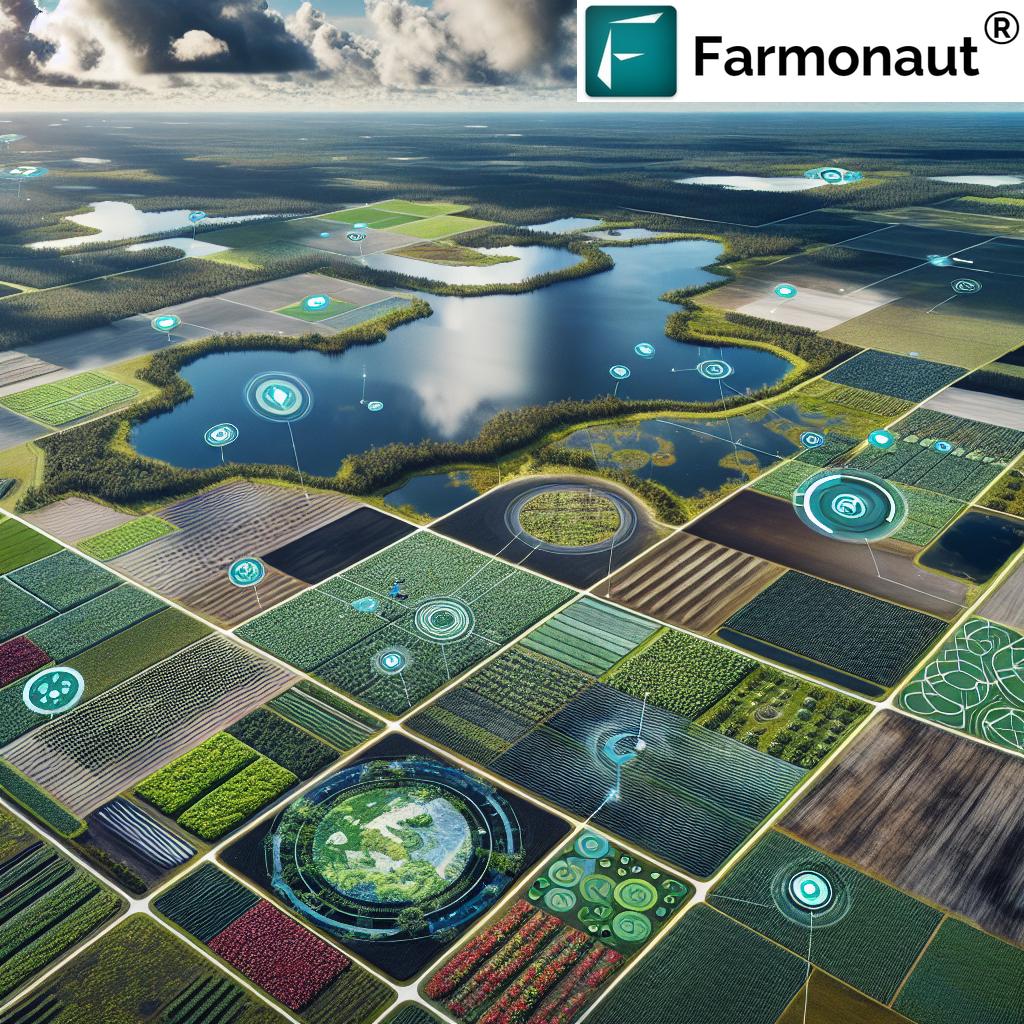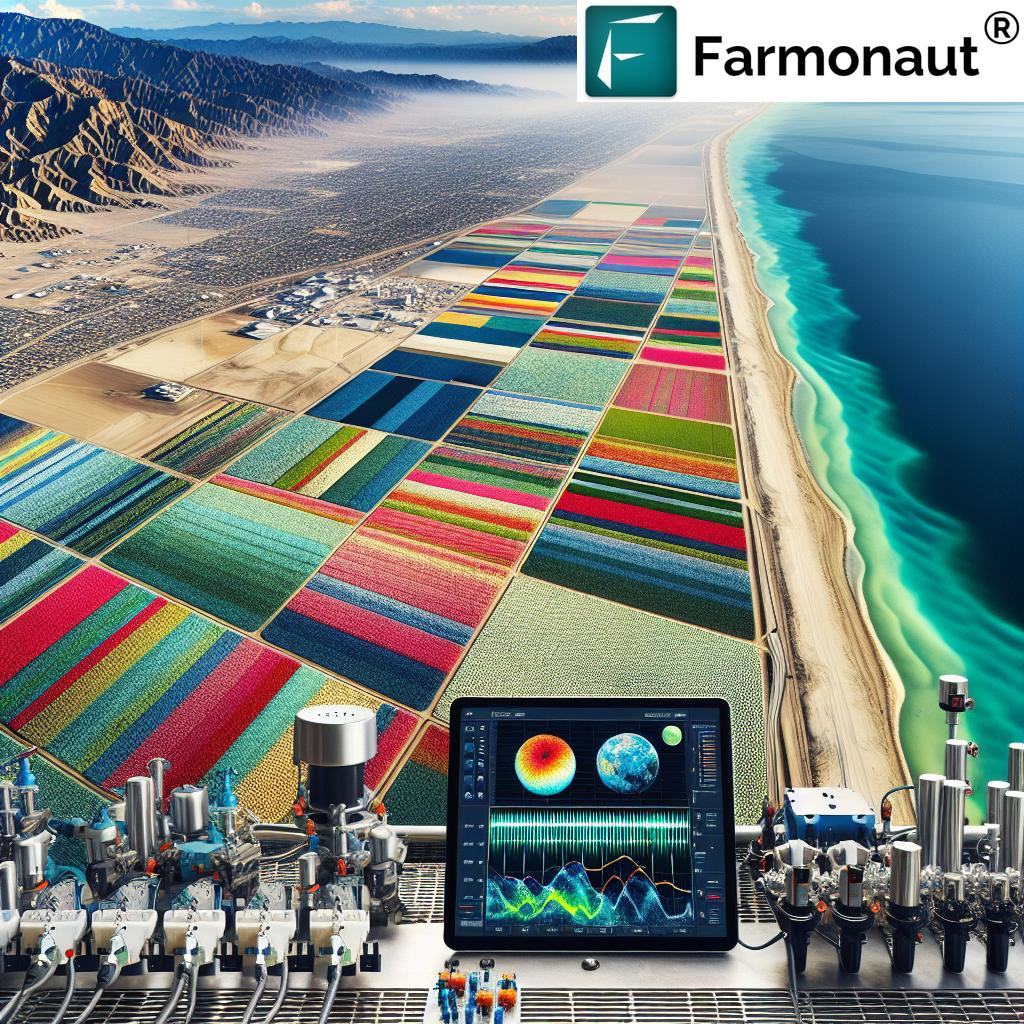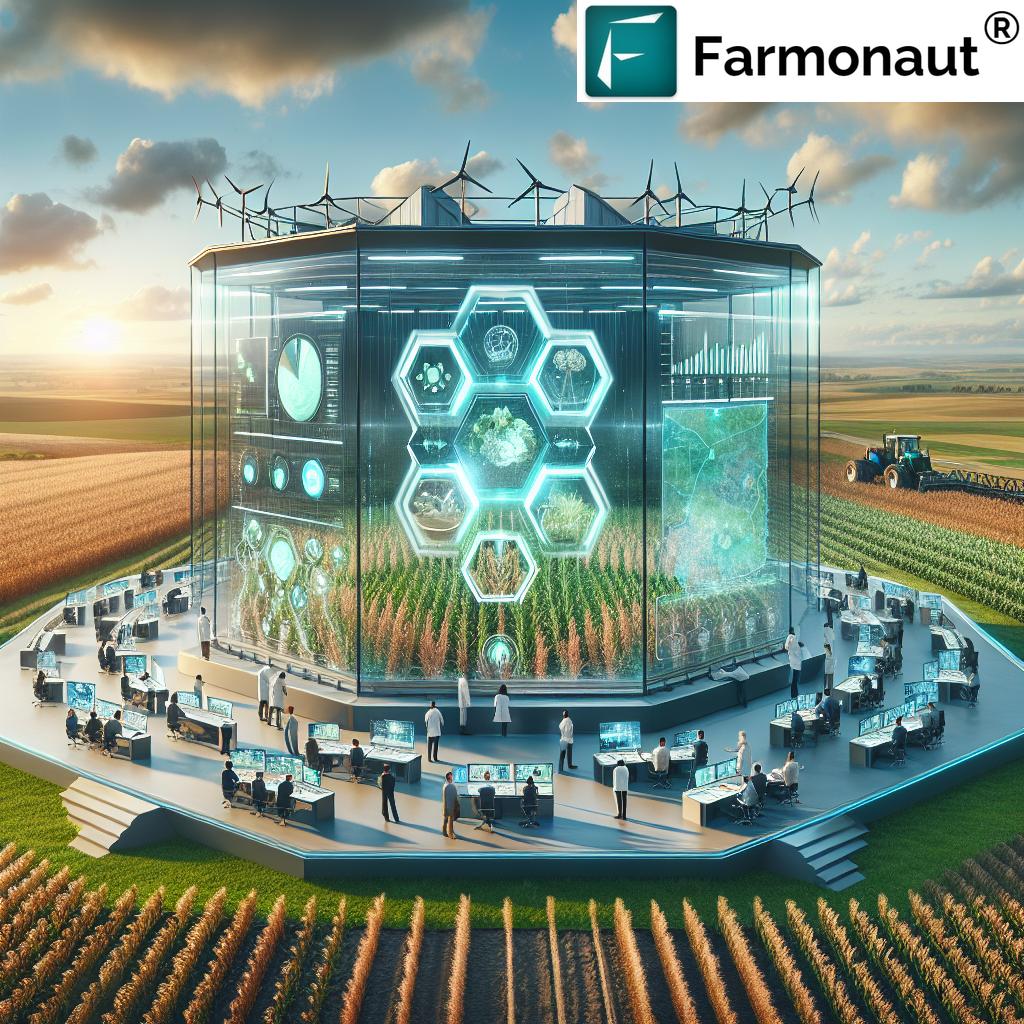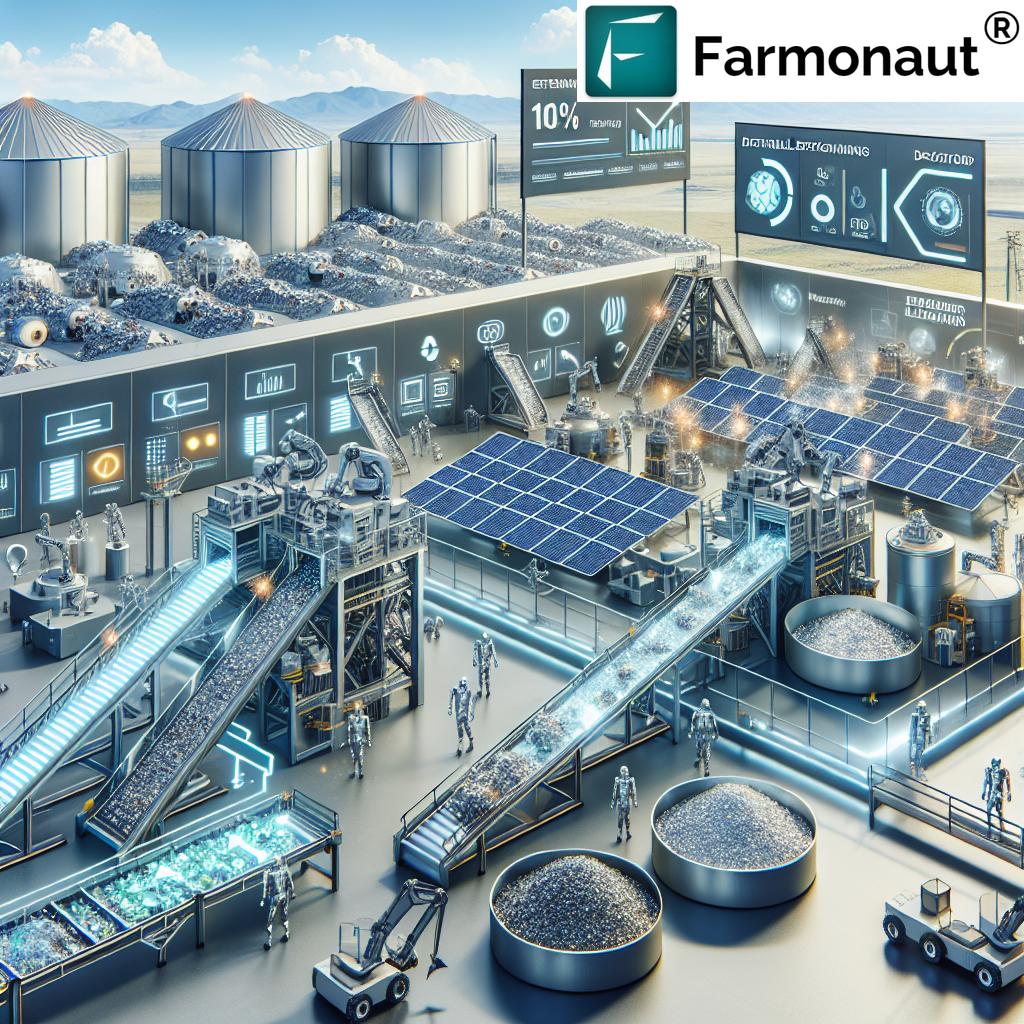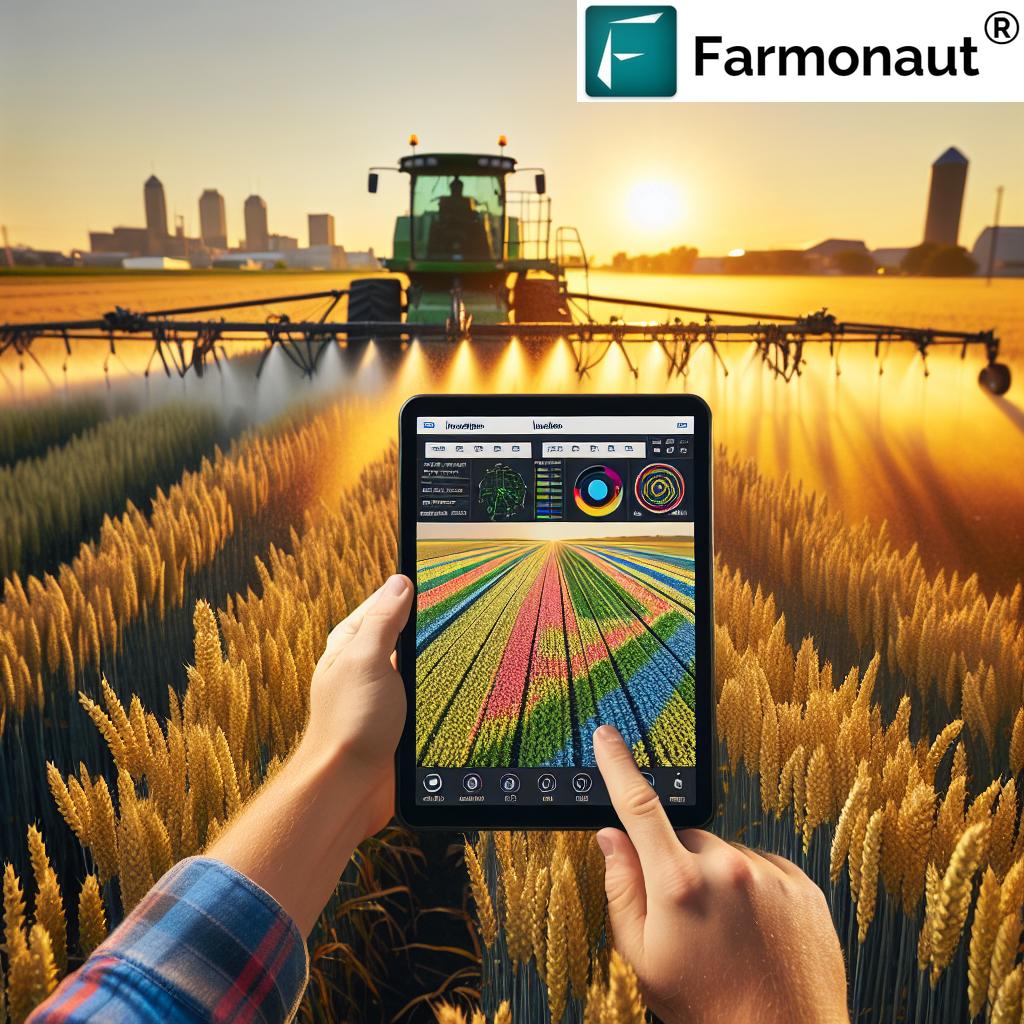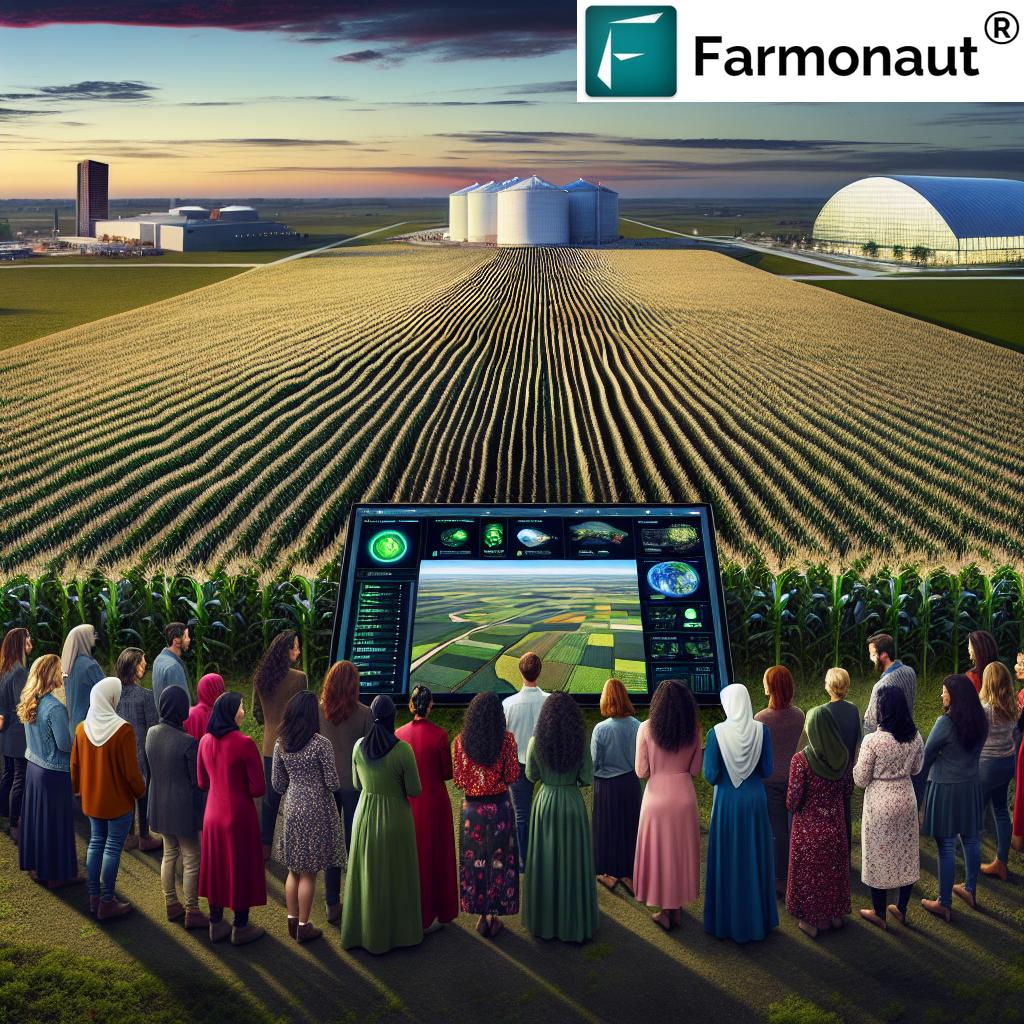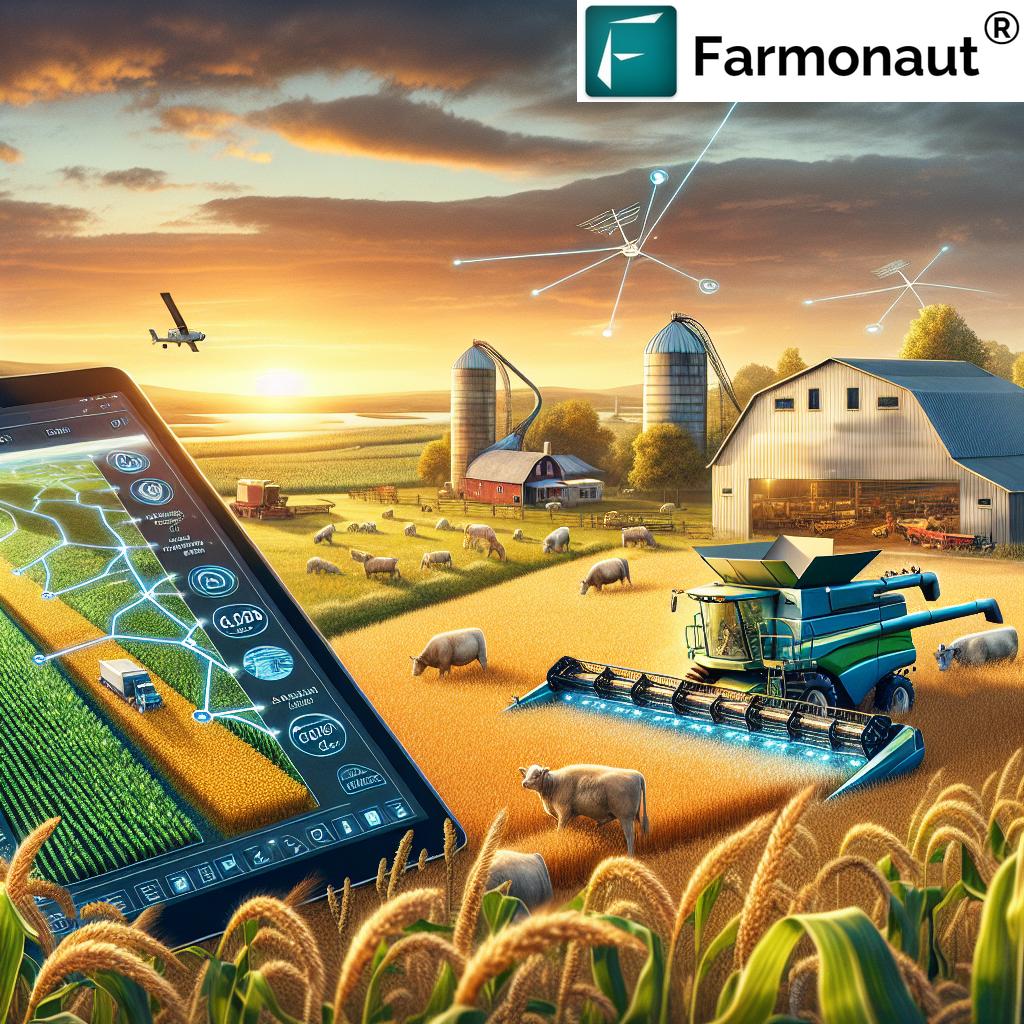Discover Sustainable Agriculture: Florida’s Eco-Friendly Farming Techniques with Farmonaut’s Precision Technology
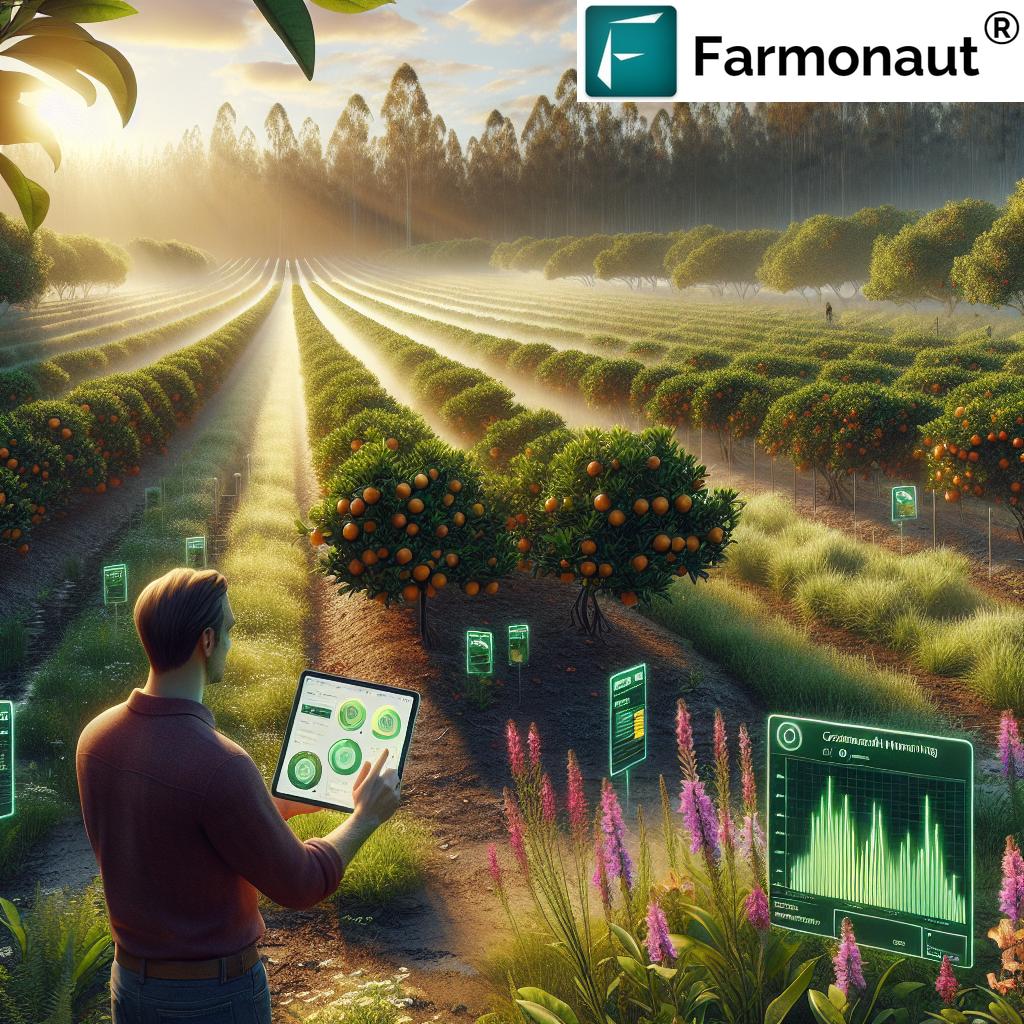
“Florida’s sustainable agriculture practices span at least 4 counties: Orange, Seminole, Lake, and Osceola.”
Welcome to the Sunshine State, where sustainable agriculture is blooming as vibrantly as our famous orange groves! We’re excited to take you on a journey through Florida’s diverse agricultural landscape, exploring how innovative farming techniques and cutting-edge technology are shaping a greener future for our beloved state.
In this comprehensive guide, we’ll delve into the sustainable agriculture practices and precision farming technology that are transforming farms from Orange County to Seminole County, and beyond. We’ll explore how Farmonaut’s advanced crop health monitoring and agricultural remote sensing solutions are revolutionizing local farming, helping our hardworking farmers boost yields while conserving precious resources.
The Green Revolution in Florida’s Agriculture
Florida’s agricultural sector is as diverse as its ecosystems, ranging from the central forests to the coastal regions. Our state is known for its citrus fruits, strawberries, tomatoes, and a wide variety of other crops. However, with challenges like water scarcity, soil degradation, and the ever-present threat of climate change, our farmers are turning to sustainable agriculture practices to ensure a prosperous future.
Smart Irrigation Systems: Quenching Crops’ Thirst Efficiently
Water conservation is a top priority in Florida’s agriculture. With our state’s unique climate and soil conditions, efficient irrigation is crucial. That’s where smart irrigation systems come into play. These innovative systems use real-time data and weather forecasts to optimize water usage, ensuring crops receive just the right amount of hydration.
- Soil moisture sensors: These devices monitor the water content in the soil, allowing for precise irrigation scheduling.
- Weather-based controllers: By integrating local weather data, these systems adjust watering schedules to avoid unnecessary irrigation during rainy periods.
- Drip irrigation: This method delivers water directly to the plant roots, minimizing evaporation and runoff.
Farmonaut’s crop health monitoring technology plays a crucial role in enhancing these smart irrigation systems. By providing accurate, up-to-date information on crop health and soil moisture levels, Farmonaut enables farmers to make data-driven decisions about when and how much to irrigate.
Soil Moisture Management: The Foundation of Healthy Crops
Proper soil moisture management is essential for sustainable agriculture. It not only conserves water but also promotes healthy root development and nutrient uptake. In Florida, where soil types can vary significantly from region to region, tailored approaches to soil moisture management are crucial.
- Cover cropping: Planting cover crops between main crop cycles helps retain soil moisture and prevent erosion.
- Mulching: Organic mulches like straw or wood chips help reduce evaporation and maintain consistent soil moisture levels.
- Precision irrigation: Using Farmonaut’s agricultural remote sensing technology, farmers can identify areas that need more or less water, allowing for targeted irrigation.
Explore Farmonaut’s precision agriculture solutions:
Native Plant Landscaping: Embracing Florida’s Natural Beauty
Native plant landscaping is gaining popularity not only in home gardens but also in agricultural settings. By incorporating native plants into farm landscapes, we can create habitats for beneficial insects and wildlife while reducing the need for water and chemical inputs.
- Wildflower borders: Planting native wildflowers around crop fields attracts pollinators and natural pest predators.
- Native windbreaks: Using native trees and shrubs as windbreaks protects crops and soil while providing wildlife habitat.
- Water-wise landscaping: Choosing drought-tolerant native plants for non-crop areas reduces overall water consumption on the farm.
Farmonaut’s technology can assist in monitoring these native plant areas, ensuring they remain healthy and continue to provide ecological benefits to the farm ecosystem.
Sustainable Gardening Techniques: From Small Plots to Large Farms
Whether you’re tending a backyard garden in Casselberry or managing acres of farmland near Kissimmee, sustainable gardening techniques can be scaled to fit any size operation. These methods focus on working with nature rather than against it, resulting in healthier plants and a more resilient ecosystem.
- Companion planting: Growing complementary plants together can improve pest control and soil health.
- Crop rotation: Alternating crops in a given field helps prevent soil depletion and breaks pest cycles.
- Integrated Pest Management (IPM): This holistic approach to pest control minimizes chemical use by employing natural predators and cultural practices.
Farmonaut’s plant disease detection capabilities are particularly valuable in implementing IPM strategies. By identifying potential disease outbreaks early, farmers can take targeted action, reducing the need for broad-spectrum pesticides.
Community Gardens: Cultivating Sustainability and Connection
Community gardens are sprouting up across Florida, from urban centers to rural towns. These shared spaces not only provide fresh, locally grown produce but also serve as hubs for education and community building.
- Educational workshops: Many community gardens offer classes on sustainable gardening techniques and environmental conservation.
- Seed exchanges: These events promote biodiversity and preserve heirloom varieties.
- Composting programs: Community-wide composting efforts reduce waste and provide nutrient-rich soil for gardens.
While Farmonaut’s technology is typically used on larger scales, the principles of precision agriculture and resource management can be applied to community gardens, helping these small-scale operations thrive.
“Farmonaut’s technology addresses 3 key areas: crop health monitoring, agricultural remote sensing, and plant disease detection.”
Extension Programs: Bridging the Gap Between Research and Practice
Florida’s agricultural extension programs play a vital role in disseminating knowledge and promoting sustainable practices. These programs, often run through state universities, provide farmers and gardeners with the latest research-based information and techniques.
- On-farm demonstrations: Extension agents showcase sustainable techniques in real-world settings.
- Soil testing services: Accurate soil analysis helps farmers optimize fertilizer use and improve soil health.
- Pest and disease identification: Rapid diagnosis of crop issues enables timely and appropriate interventions.
Farmonaut’s technology complements these extension services by providing real-time data and insights that can be used to enhance decision-making and problem-solving on the farm.
Leveraging Cloud-Based Technologies for Sustainable Agriculture
Cloud-based technologies are transforming agriculture in Florida, enabling farmers to access and analyze vast amounts of data from anywhere. This connectivity is crucial for implementing precision agriculture techniques and making informed decisions.
- Remote monitoring: Farmers can track crop health, soil moisture, and weather conditions from their smartphones or tablets.
- Data-driven decision making: Historical and real-time data help optimize planting, irrigation, and harvesting schedules.
- Collaboration and knowledge sharing: Cloud platforms facilitate information exchange between farmers, researchers, and agricultural experts.
Farmonaut’s cloud-based platform integrates seamlessly with these technologies, providing a comprehensive solution for sustainable farm management.
Explore Farmonaut’s API for custom integrations:
Wildlife Preservation in Agricultural Landscapes
Balancing agricultural production with wildlife conservation is a key aspect of sustainable farming in Florida. Our state is home to diverse ecosystems and numerous species, many of which can coexist with and even benefit agricultural operations.
- Wildlife corridors: Creating and maintaining natural pathways allows animals to move safely through agricultural areas.
- Habitat restoration: Restoring wetlands, forests, and prairies on marginal farmland provides crucial habitats for native species.
- Integrated pest management: By promoting natural predators, farmers can reduce pesticide use and support local wildlife.
Farmonaut’s agricultural remote sensing technology can help monitor these wildlife-friendly areas, ensuring they remain healthy and productive alongside cultivated fields.
Urban Gardening: Bringing Sustainability to Florida’s Cities
Urban gardening is on the rise in Florida’s cities, transforming rooftops, balconies, and vacant lots into productive green spaces. These urban oases not only provide fresh produce but also help reduce the urban heat island effect and improve air quality.
- Vertical gardening: Maximizing space in urban environments by growing plants vertically.
- Hydroponic systems: Soil-less growing methods that conserve water and space.
- Rooftop gardens: Utilizing unused roof space for food production and green spaces.
While Farmonaut’s technology is primarily designed for larger agricultural operations, the principles of precision resource management can be adapted to urban gardening contexts, helping city dwellers maximize their growing potential.
Precision Agriculture: The Future of Farming in Florida
Precision agriculture is revolutionizing farming practices across Florida, allowing for more efficient use of resources and higher yields. This approach uses technology to tailor farming practices to the specific needs of each plant or area within a field.
- Variable rate technology: Applying inputs like water, fertilizer, and pesticides at variable rates based on plant needs.
- GPS-guided machinery: Reducing overlap and improving efficiency in planting, spraying, and harvesting operations.
- Drone technology: Using aerial imagery to assess crop health and identify problem areas quickly.
Farmonaut’s crop health monitoring and agricultural remote sensing solutions are at the forefront of precision agriculture, providing farmers with the data and insights they need to implement these advanced techniques effectively.
Get Farmonaut on your mobile device:
Sustainable Farming Techniques Across Florida Counties
Let’s take a closer look at how different counties in Florida are implementing sustainable farming techniques and leveraging Farmonaut’s technology:
| County | Primary Crop | Sustainable Technique | Environmental Benefit | Farmonaut Technology Used |
|---|---|---|---|---|
| Orange | Citrus | Smart Irrigation Systems | 30% water savings | Crop Health Monitoring |
| Seminole | Vegetables | Precision Fertilizer Application | 25% reduction in fertilizer use | Agricultural Remote Sensing |
| Lake | Blueberries | Integrated Pest Management | 40% reduction in pesticide use | Plant Disease Detection |
| Osceola | Cattle | Rotational Grazing | Improved soil health and carbon sequestration | Pasture Health Monitoring |
The Role of Technology in Environmental Conservation
As we’ve explored throughout this article, technology plays a crucial role in promoting environmental conservation in agriculture. From smart irrigation systems to precision farming techniques, these innovations are helping Florida’s farmers reduce their environmental impact while maintaining or even increasing productivity.
Farmonaut’s suite of tools, including crop health monitoring, agricultural remote sensing, and plant disease detection, are at the forefront of this technological revolution. By providing accurate, timely data and insights, Farmonaut empowers farmers to make informed decisions that benefit both their operations and the environment.
Embracing a Sustainable Future
As we look to the future of agriculture in Florida, it’s clear that sustainability and technology will continue to play pivotal roles. From the orange groves of Central Florida to the vegetable farms of the coast, farmers are embracing eco-friendly practices and cutting-edge tools to ensure a prosperous and sustainable future.
By leveraging precision farming technology, implementing smart resource management, and working in harmony with our unique Florida ecosystems, we can create an agricultural landscape that is both productive and environmentally responsible. Whether you’re a large-scale farmer, a backyard gardener, or simply someone interested in where your food comes from, there’s a place for you in this green revolution.
We invite you to explore the world of sustainable agriculture in Florida further. Visit a local community garden, participate in an extension program workshop, or consider implementing some of these eco-friendly techniques in your own garden. Together, we can cultivate a greener, more sustainable Florida for generations to come.
Farmonaut Subscriptions
Frequently Asked Questions
Q: What is sustainable agriculture?
A: Sustainable agriculture refers to farming practices that meet society’s current food and textile needs without compromising the ability of future generations to meet their own needs. It focuses on three main objectives: environmental health, economic profitability, and social and economic equity.
Q: How does precision farming technology benefit the environment?
A: Precision farming technology, such as that offered by Farmonaut, helps farmers optimize resource use, reducing waste and environmental impact. It enables targeted application of water, fertilizers, and pesticides, minimizing runoff and pollution while maximizing crop yields.
Q: What are some examples of sustainable gardening techniques?
A: Sustainable gardening techniques include composting, mulching, companion planting, water-wise irrigation, and using native plants. These methods conserve resources, promote biodiversity, and reduce the need for chemical inputs.
Q: How can I get involved in community gardening in Florida?
A: To get involved in community gardening, check with your local extension office, parks department, or community centers. Many cities and towns have existing community gardens or programs to help start new ones.
Q: What role does agricultural remote sensing play in sustainable farming?
A: Agricultural remote sensing, a key feature of Farmonaut’s technology, uses satellite imagery to monitor crop health, soil moisture, and other critical factors. This information helps farmers make data-driven decisions, optimizing resource use and reducing environmental impact.
